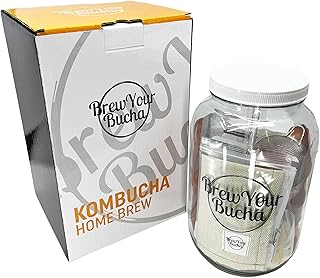Understanding Fermentation in Alcohol Production
Fermentation is a natural metabolic process that converts sugar into acids, gases, or alcohol. This process is crucial in the production of various alcoholic beverages. The primary organisms involved in fermentation are yeast and bacteria, which play a significant role in transforming raw ingredients into alcohol. Understanding whether all alcohol is fermented requires a closer look at the different types of alcohol and their production methods.
Types of Alcohol and Their Production Methods
Alcohol can be broadly categorized into two types: fermented and distilled. Fermented alcohol is produced through the fermentation of sugars, while distilled alcohol involves the process of distillation, which concentrates the alcohol content. Common examples of fermented alcohol include beer and wine, whereas distilled spirits like whiskey and vodka undergo an additional distillation process to increase their alcohol concentration.
The Role of Yeast in Fermentation
Yeast is a crucial player in the fermentation process. It consumes sugars present in the raw materials, such as grapes for wine or grains for beer, and converts them into ethanol and carbon dioxide. This transformation is what gives fermented beverages their characteristic flavors and aromas. Different strains of yeast can impart unique qualities to the final product, making yeast selection an essential factor in alcohol production.
Distillation: A Step Beyond Fermentation
While fermentation is the initial step in producing many alcoholic beverages, distillation is a subsequent process that further refines the alcohol. Distillation involves heating the fermented liquid to separate the alcohol from the water and other components based on their boiling points. This process results in a higher alcohol concentration, which is why distilled spirits have a significantly higher alcohol by volume (ABV) compared to fermented beverages.
Examples of Fermented Alcoholic Beverages
Fermented alcoholic beverages are diverse and include products such as beer, wine, and cider. Each of these beverages relies on fermentation to develop their unique flavors and characteristics. For instance, beer is made from malted grains, hops, water, and yeast, while wine is produced from fermented grapes. The fermentation process for each beverage varies, leading to a wide range of flavors and styles.
Get more content like this!
Sign up to receive updates and new terms first hand.
Non-Fermented Alcoholic Beverages
Not all alcoholic beverages are produced through fermentation. Some drinks, like certain types of flavored spirits or liqueurs, may use artificial flavorings and sweeteners, bypassing the fermentation process. Additionally, some alcohols are produced through chemical processes rather than biological fermentation. Understanding these distinctions is essential for anyone interested in the world of alcohol.
The Importance of Fermentation in Craft Beverages
In the craft beverage industry, fermentation is celebrated for its ability to create complex flavors and aromas. Craft brewers and winemakers often experiment with various fermentation techniques, such as wild fermentation or barrel aging, to enhance the uniqueness of their products. This emphasis on fermentation not only contributes to the quality of the beverages but also fosters a deeper appreciation for the art of alcohol production.
Health Considerations Related to Fermented Alcohol
Fermented alcohol can have different health implications compared to distilled spirits. Some studies suggest that moderate consumption of fermented beverages like wine may offer certain health benefits due to the presence of antioxidants and other compounds. However, it is essential to consume alcohol responsibly, as excessive intake can lead to adverse health effects regardless of the type of alcohol.
Conclusion: The Fermentation Process in Alcohol Production
In summary, while most alcoholic beverages are indeed fermented, there are exceptions where alcohol is produced through other methods. Understanding the fermentation process and its significance in alcohol production can enhance one’s appreciation for the diverse world of alcoholic beverages. Whether enjoying a glass of wine or a craft beer, recognizing the role of fermentation adds depth to the experience.




